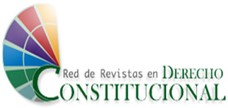LINGUISTIC MULTIPLICITY AND THE PRINCIPLE OF NON-DISCRIMINATION IN RESPECT TO NATIONALITY IN THE DOMINION OF THE EUROPEAN UNION
Keywords:
European Union, Integration, European Citizen, Principle of non-discrimination, Official LanguagesAbstract
The slogan of the European Union foreseen in the failed Constitution, given its lack of approval in France and the Netherlands, but whose fruits are seen both in the Treaty of Lisbon, both in the political aspirations that remain on the agenda, is "United in diversity". And one of the foundations of this diversity is the language of each people. In a set of 28 Member States – the United Kingdom has not yet officially left the European Union – with only a couple of States having the same language, notably France and Belgium. Thus, while language is one of the greatest manifestations of a people's culture, is certainly also an obstacle to the integration process of the European Union. In this sense, it is necessary to put rules so that institutions, organs, and citizens can interact in a viable and flowing way – both administrative and judicial processes. This implies directly the exercise of the right of European citizenship since there is nothing for a European citizen to have a right without being able to enjoy it. The purpose of this article is to examine the question of the official languages of the European Union, based on two judgments handed down by the Court of Justice of the European Union, the subject of which was precisely that question.
References
ABÉLÈS, Marc. Homo communitarius. In: KASTORYANO, Riva. Que identidade
para a Europa?. Lisboa: Ulisseia, 2004.
BORCHARDT, Klaus-Dieter. ABC da União Europeia. Bruxelas: Mediateca da
Comissão Europeia, 2011.
CANOTILHO, J.J. Gomes. Tribunal Constitucional, Jurisprudência, Políticas Públicas. Conferência comemorativa do XX aniversário do Tribunal Constitucional: Lisboa, 2003.
CANOTILHO, Mariana. Igualdade de oportunidades e não discriminação. In: SILVEIRA Alessandra; CANOTILHO, Mariana; FROUFE, Pedro Madeira (Org.). Direito da União Europeia: elementos de direito e política da União. Coimbra: Almedina, 2016.
EUROJUST. sobre a Eurojust. S.d. Disponível em: <http://eurojust.europa.eu/Pages/languages/pt.aspx>. Acesso em 02 out. 2018.
JERÔNIMO, Patrícia. Artigo 22.o Diversidade cultural, religiosa e linguística: A União respeita a diversidade cultural, religiosa e linguística, 2013. Disponível em: <http://repositorium.sdum.uminho.pt/handle/1822/22354>. Acesso em: 20 maio
Pela ordem das línguas oficiais, segundo artigo 55.o do TUE. (SILVEIRA, 2016, p. 66).
MATIAS, Joana Maria Santos Matias. Identidade cultural europeia: idealismo, projecto ou realidade?. 2009, Dissertação (Mestrado em Estudos sobre a Europa), Universidade de Coimbra, Coimbra, 2009.
SILVEIRA, Alessandra. Princípios de direito da União Europeia, doutrina e jurisprudência. Lisboa: Quid Juris, 2011.
SILVEIRA, Alessandra. Tratado de Lisboa, Versão consolidada. Lisboa: Quid Juris, 2016.
UNIÃO EUROPEIA. Tribunal de Justiça da União Europeia. proc. C-137/84. Mutsch. 11 de julho de 1985.
UNIÃO EUROPEIA. Tribunal de Justiça da União Europeia. proc. C-379/87. Groener. de 28 de novembro de 1989.
UNIÃO EUROPEIA. Tribunal de Justiça da União Europeia. proc. C-274/96. Bickel e Franz. de 24 de novembro de 1998.
UNIÃO EUROPEIA. Tribunal de Justiça da União Europeia. proc. C-44/98. Basf. de 21 de setembro de 1999.
UNIÃO EUROPEIA. Tribunal de Justiça da União Europeia. proc. T-120/99. Kik. 12 de julho de 2001.
UNIÃO EUROPEIA. Tribunal de Justiça da União Europeia. proc. C-361/01. Kik. 9 de setembro de 2003.
UNIÃO EUROPEIA. Tribunal De Justiça (Grande Secção). proc. C-160/03. Espanha/Eurojust. 2005
WITTE, Bruno. Language law of the European Union: protecting or eroding linguistic diversity?. In: SMITH, Rachael Craufurd (Org.) Culture and European Union Law. Oxford: Oxford University Press, 2004.








